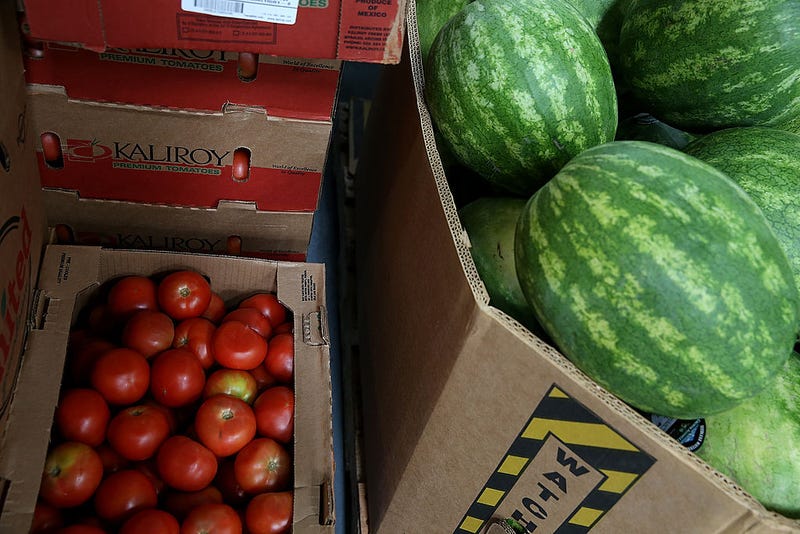
SAN FRANCISCO (KCBS RADIO) – States are now able to prioritize "food as medicine" and use Medicaid funds to help people put fresh food on the table.
For more, stream KCBS Radio now.
The Biden administration has now made it possible for states to use Medicaid funds for people to get groceries as an effort to improve overall health.
While there hasn't been much research done on the effectiveness of these programs yet, a lot are currently being considered across the country.
"A few states are proposing to do things like this with their Medicaid funds," said Craig Gunderson, Snee Family Endowed Chair of the Baylor Collaborative on Hunger and Poverty, and an economics professor at Baylor University on KCBS Radio's "Ask an Expert" with Margie Shafer and Eric Thomas on Monday.
"On the one hand it’s great to see new solutions to these issues," he said. "On the other hand, these programs are incredibly expensive – and there are already existing programs that we know are already doing this effectively."
While this new option might rub some lawmakers the wrong way, the main issue is likely to be more focused on whether or not this type of program will actually improve health more than whatever existing programs there are.
"This is part of the reason why I think we need to talk more about the most successful program we have to date – SNAP," said Gunderson.
SNAP, or the Supplemental Nutrition Assistance Program, is the food stamps system already in place in the United States, which helps lower-income people access food.
Studies do show consistently that by giving people more money, and more resources, they will likely have better diets which will lead to less food insecurity.
"Across our society, we see those with higher incomes have on average better health outcomes than people with lower incomes," he said. "They just have more money."
SNAP benefits were already increased recently by 20% under the new revised Thrifty Food Plan, according to Gunderson.
"It allowed vulnerable Americans to spend more on food, which allows them to improve their health," he said.
Food as medicine programs aren’t necessarily a bad addition, but just ultimately might not be necessary when SNAP already exists.
What would be more cost-effective and simple would just be to increase the resources under SNAP.
DOWNLOAD the Audacy App
SIGN UP and follow KCBS Radio
Facebook | Twitter | Instagram

